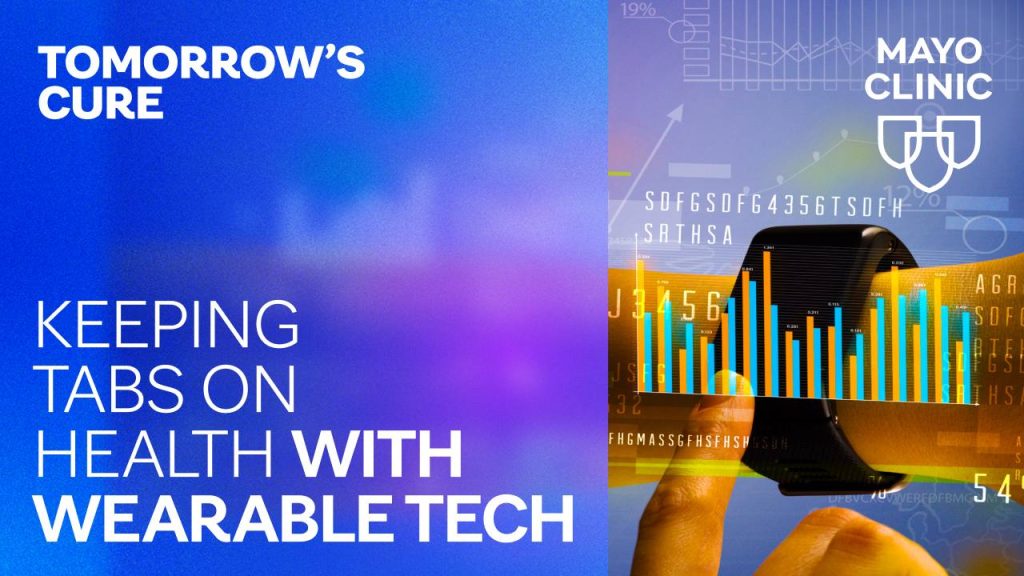-
Medical Innovation
Tomorrow’s Cure: Keeping tabs on health with wearable tech

Wearable technology is transforming how people track health, manage chronic conditions and personalize care. In this episode of Tomorrow's Cure, experts reveal how these tools are reshaping healthcare. From detecting burnout in healthcare workers to predicting surgical recovery, the possibilities are expanding rapidly. Listen to learn how innovation in digital health is making care more proactive, accessible and tailored to every patient.
This week's episode features insights from Dr. Arjun Athreya, electrical and computer engineer and senior associate consultant at Mayo Clinic; and Dr. Jeannie Bailey, associate professor of orthopedic surgery and director of physical function and biomechanics research core at the University of California, San Francisco. Both are leading innovative efforts to use wearables to drive meaningful improvements in patient care.
Wearables enable real-time interventions, allowing clinicians to respond immediately when a behavioral change is detected. By capturing data such as heart rate, energy expenditure and sleep patterns, these devices help personalize care for each patient. They also allow for long-term monitoring across weeks or months, offering insights that can help predict changes in a person's health.
"The elegant science of trying to figure out how to use this data in a way that's going to improve patient outcomes, I think is very difficult and more of it needs to be done," says Dr. Bailey.
While wearables are increasingly popular among the general public, the next challenge lies in translating this commercial use into meaningful clinical outcomes.
"Any new patient walking through our door with a wearable device, we should be able to use that data and facilitate end measurement or prognostication, or prediction or diagnosis," says Dr. Athreya.
Wearables also empower patients by giving them tools to monitor their health so they can play a more active role in their care journey.
"This tracking really enables patients to take ownership and think about their own progress, and it gives them that feedback," says Dr. Bailey. "They see how they're doing better, they're getting hopeful, and it's definitely affecting them."
Additionally, the technology empowers clinicians to extend care beyond the walls of the clinic, reaching individuals and communities who may not have regular access to in-person care. Wearables offer a scalable solution that can help reduce health disparities more effectively than costly, hard-to-access clinic visits.
Wearable technology is unlocking new ways to improve patient outcomes. Tune in to the latest episode of Tomorrow's Cure to explore the cutting-edge research driving this innovation. For more episodes and featured experts, visit tomorrowscure.com.







